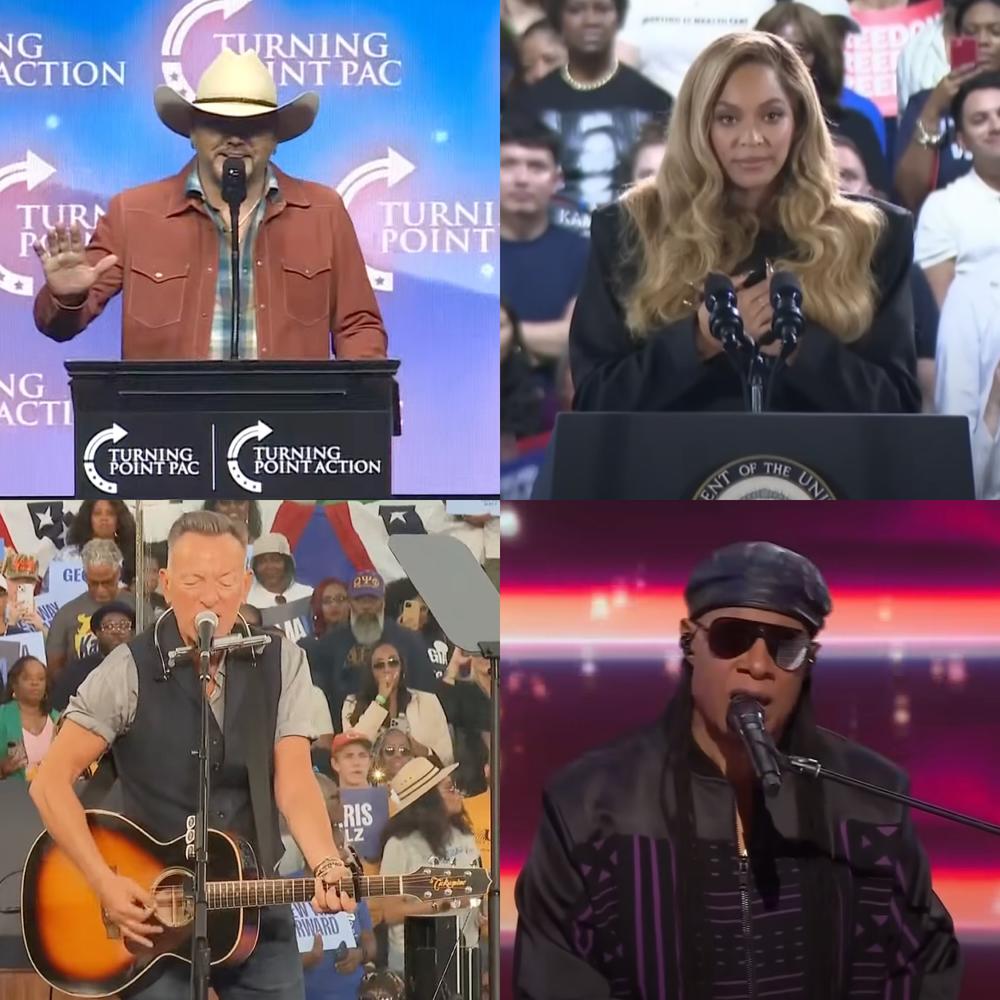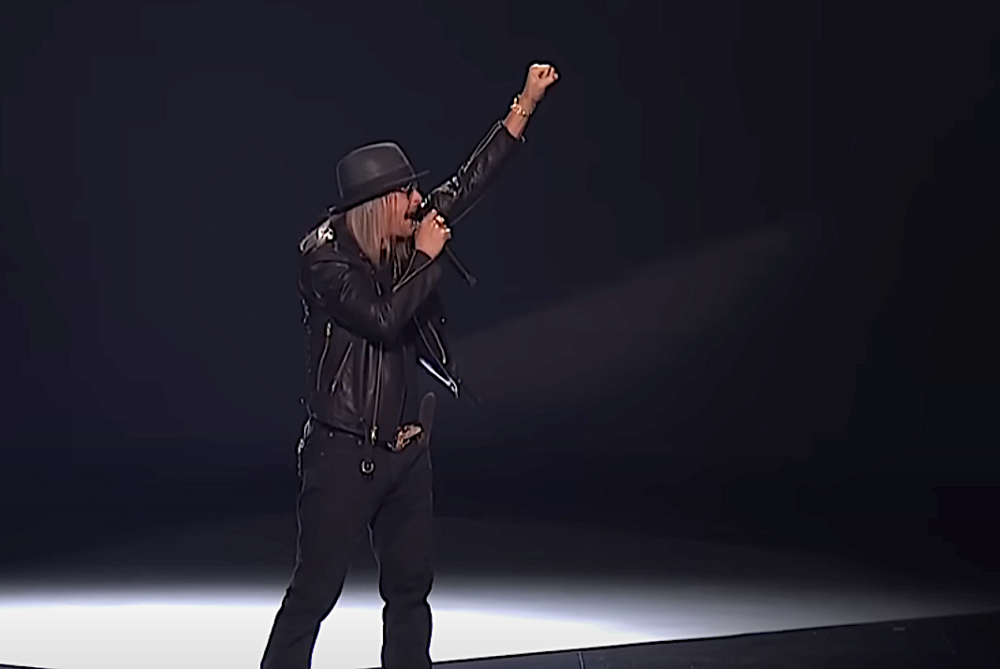
Caption
Musicians Jason Aldean (top left), Beyoncé (top right), Bruce Springsteen (bottom left) and Stevie Wonder (bottom right) have appeared at campaign events for U.S. presidential candidates in 2024, at a time when music is making an impact on and off the campaign trail.
Credit: PBS News Hour / YouTube



